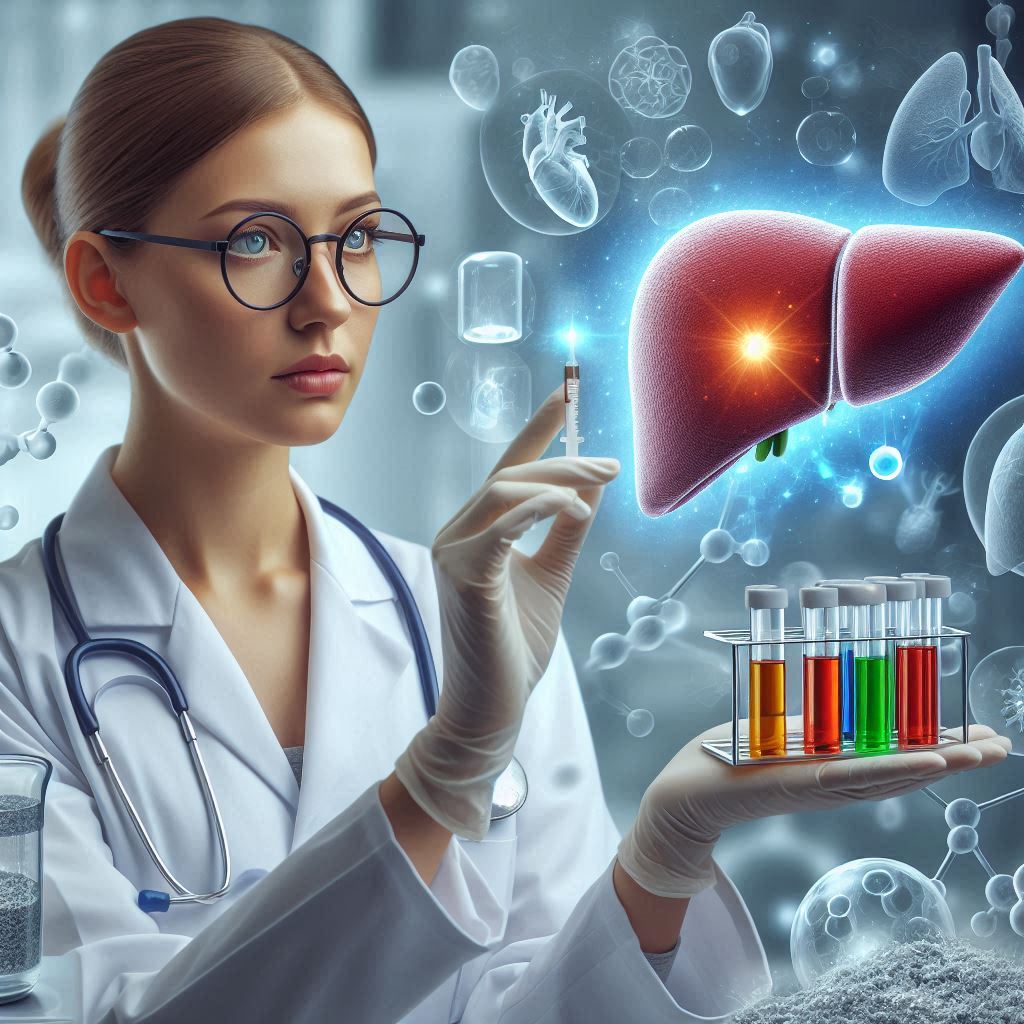Researchers have developed a groundbreaking therapy that could revolutionize the treatment of Metabolic Dysfunction-Associated Steatohepatitis (MASH), a prevalent liver disease affecting millions globally. This innovative approach leverages short-acting IL-22-bispecific biologics, which have shown remarkable efficacy and safety in preclinical trials.
MASH, previously known as Non-alcoholic Steatohepatitis (NASH), is a serious liver condition characterized by fat accumulation, inflammation, and fibrosis. Despite its widespread impact, effective treatment options are limited. Enter the newly designed IL-22-bispecific biologics, which specifically target the liver and pancreas. This targeted approach maximizes therapeutic benefits while minimizing side effects, marking a significant leap forward in MASH treatment.
Interleukin-22 (IL-22) is a cytokine known for its protective roles in various tissues. It has been studied for its potential in managing metabolic diseases, demonstrating the ability to reduce inflammation, improve insulin production, and reverse hyperglycaemia. However, previous long-acting forms of IL-22 have been problematic, causing adverse effects such as skin and intestinal proliferation.
To address these issues, scientists developed short-acting IL-22-bispecific biologics that hone in on the liver and pancreas. This precise targeting not only enhances the treatment’s effectiveness but also mitigates the risk of off-target effects. In preclinical models, these biologics outperformed native IL-22, achieving superior results at much lower doses.
In animal studies, the IL-22-bispecific biologics improved glycaemic control, reduced liver fat, and diminished inflammation and fibrosis. These benefits were achieved without the adverse effects commonly seen with earlier IL-22 treatments. The biologics work by activating the IL-22RA1 receptor, which triggers beneficial pathways, improving satiety and reducing food intake.
The development of these IL-22-bispecific biologics could herald a new era in the treatment of MASH. The next step will involve clinical trials to confirm their safety and efficacy in humans. If successful, this therapy could significantly improve the lives of those suffering from MASH and potentially other metabolic or inflammatory diseases.
This innovative treatment offers new hope for MASH patients, combining effectiveness with a favourable safety profile. As research progresses, these IL-22-bispecific biologics could become a cornerstone in the battle against liver disease, providing relief and improved health outcomes for millions worldwide.
Join us on August 13-14, 2024, at Songdo Convensia, Incheon, South Korea, for the 13th Edition of Biologics Manufacturing Korea. This premier event, renowned for fostering strategic collaborations in the biopharmaceutical industry, offers a platform for regional stakeholders to explore cutting-edge manufacturing technologies and share expertise. The conference will feature success stories from leading Korean biopharma, insights from international experts, and sessions on high-throughput cell line development, purification by chromatography, analytics, Bioprocessing 4.0, and digitalization. Dedicated showcases for CMOs and CDMOs, along with sessions on Cell & Gene Therapy Manufacturing Excellence and facility design, make this a must-attend event for industry professionals.
Find out more at https://imapac.com/events/biologics-manufacturing-korea/





